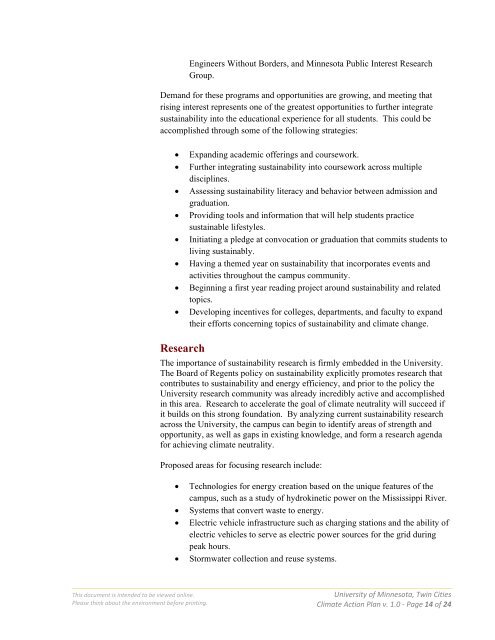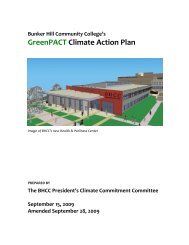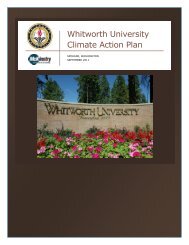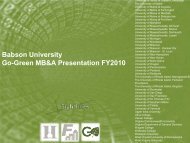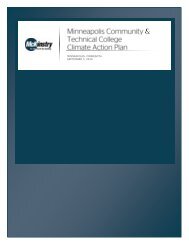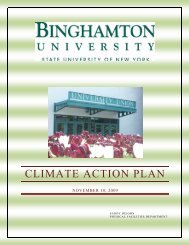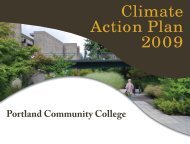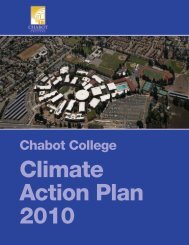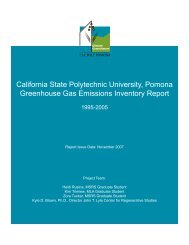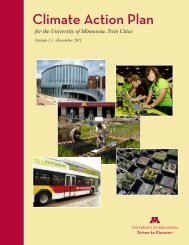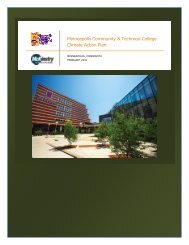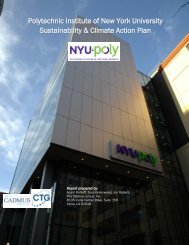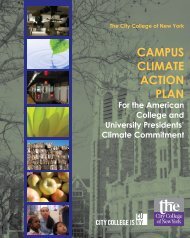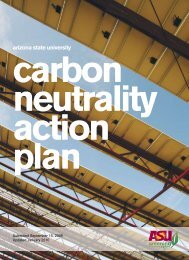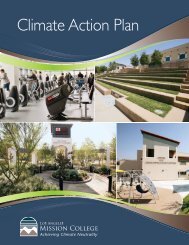Climate Action Plan - ACUPCC Reports - Climate Commitment
Climate Action Plan - ACUPCC Reports - Climate Commitment
Climate Action Plan - ACUPCC Reports - Climate Commitment
You also want an ePaper? Increase the reach of your titles
YUMPU automatically turns print PDFs into web optimized ePapers that Google loves.
Engineers Without Borders, and Minnesota Public Interest ResearchGroup.Demand for these programs and opportunities are growing, and meeting thatrising interest represents one of the greatest opportunities to further integratesustainability into the educational experience for all students. This could beaccomplished through some of the following strategies:• Expanding academic offerings and coursework.• Further integrating sustainability into coursework across multipledisciplines.• Assessing sustainability literacy and behavior between admission andgraduation.• Providing tools and information that will help students practicesustainable lifestyles.• Initiating a pledge at convocation or graduation that commits students toliving sustainably.• Having a themed year on sustainability that incorporates events andactivities throughout the campus community.• Beginning a first year reading project around sustainability and relatedtopics.• Developing incentives for colleges, departments, and faculty to expandtheir efforts concerning topics of sustainability and climate change.ResearchThe importance of sustainability research is firmly embedded in the University.The Board of Regents policy on sustainability explicitly promotes research thatcontributes to sustainability and energy efficiency, and prior to the policy theUniversity research community was already incredibly active and accomplishedin this area. Research to accelerate the goal of climate neutrality will succeed ifit builds on this strong foundation. By analyzing current sustainability researchacross the University, the campus can begin to identify areas of strength andopportunity, as well as gaps in existing knowledge, and form a research agendafor achieving climate neutrality.Proposed areas for focusing research include:• Technologies for energy creation based on the unique features of thecampus, such as a study of hydrokinetic power on the Mississippi River.• Systems that convert waste to energy.• Electric vehicle infrastructure such as charging stations and the ability ofelectric vehicles to serve as electric power sources for the grid duringpeak hours.• Stormwater collection and reuse systems.This document is intended to be viewed online.Please think about the environment before printing.University of Minnesota, Twin Cities<strong>Climate</strong> <strong>Action</strong> <strong>Plan</strong> v. 1.0 ‐ Page 14 of 24


